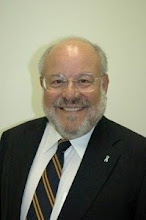Just out is a brilliant book, highly important and beautifully written, by Scott Chaskey, a Long Island, N.Y. farmer (for 25 years he has run the Peconic Land Trust’s Quail Hill Farm in Amagansett), poet and crusader for local, organic, sustainable agriculture. Seedtime: On the History, Husbandry, Politics, and Promise of Seeds http://www.rodaleinc.com/products/books/seedtime-history-husbandry-politics-and-promise-seeds is about something humanity has been deeply involved in and dependent upon throughout our time on earth: seeds.
Chaskey, in Seedtime, begins by telling of entering as a farmer into “the realm of seeds...to
witness a kind of magical reality.”
But that
“magical reality” is under threat, he declares. “As we face the challenges of
climate change and the loss of prime agricultural soils, we need a diverse seed
supply to counter the unpredictable and the unknown. Instead, we continue to
lose plant species—and the seeds of the future—at an alarming rate.”
“A seed,” he
explains, “contains an embryo, a miniature plant awaiting the moment of
transition. Seed leaves store food within the endosperm—the seed coat—that will
nourish the seedling plant when it emerges.”
“A plant’s coming
into being, or maturation is such a quiet progression that we tend to focus on
the fruit, the colorful prize of production and the vessel of taste.”
“Our entire food supply is a gift,” a result
of the emergence of flowering plants 140 million years ago, he says, and “our
health and food futures are entwined with the way we choose to nurture or
manipulate the seeds of that natural revolution.”
“The value of
conserving biodiversity cannot be overstated,” he relates. “Biodiversity is the
source of our food....Our increasing tendency to homogenize all aspects of our
ecosystems limits our ability to adapt.”
Today the food supply for humanity is
endangered—notably by genetic engineering or modification, Chaskey writes. “The
altered organism, a GMO [genetically modified organism], is the result of a
laboratory process by which a gene (or genes) of one species is inserted into
another species. This process is fundamentally different from traditional
breeding.”
In genetic modification,
genes of animals, plants, fish, insects, among other life forms, are
combined. A giant in this is Monsanto which
synchronizes its production of GMO seeds with the production of pesticides it
manufactures.
Also, there is a
push to “limit diversity” of seeds which links to, among other things, “consolidation
in the seed industry” and “mass marketing considerations.”
Monsanto,
further, has been a leader in patenting GMO seeds.
Chaskey provides
a detailed history of Monsanto, founded in 1901 by a “self-taught chemist” who
named it for his wife whose maiden name was Monsanto, and how it became the
leading producer of cancer-causing PCBs and 2,4,5-T, “the basis for Agent
Orange,” the poison used as a defoliant in the Vietnam War, as well as DDT.
“Is it at all
wise or beneficial for a corporation with a scarred legacy...to control almost
one-third of the global seed trade?” asks Chaskey.
And he tells of
how the Monsanto GMO seeds have been “developed to perform in tandem with heavy
inputs of chemical fertilizers and pesticides.” Indeed, an early GMO seed was
“Monsanto’s first ‘Roundup Ready’ soybean, genetically modified to resist the
application of Monsanto’s foundational herbicide product, Roundup.”
There is a global
challenge to GMOs, notes Chaskey. “The planting of GMO crops is largely banned
in the 28-nation European Union,” he relates. In California, individual
counties have banned GMO crops and “GMO-Free activists are aggressively campaigning
throughout this country and worldwide.” There are now, however, hundreds of
millions of acres, “concentrated in the U.S., Canada, Argentina, Brazil and
China, planted with GMO crops.
“The health of
our fields, the health of our plant communities, and the future of our food
supply will depend on whether, as a global culture, we can learn to respect the
whole of the biological community, and to accept our role as citizens of it (and
to honor those who still retain the connection),” writes Chaskey.
“May we continue
to cultivate our fields with the imperishable mystery in mind and to playfully,
carefully follow these seeds and nurture them,” he says.
Seedtime is published by Rodale Books, the press
that has been central for decades to the organic food movement. Quail Hill Farm
in 1988 became the first CSA (Community Supported Agriculture) farm in New York
State. Chaskey and the other farmers at Quail Hill are aided by apprentices and
volunteers in growing locally organic food—with good seeds.


No comments:
Post a Comment